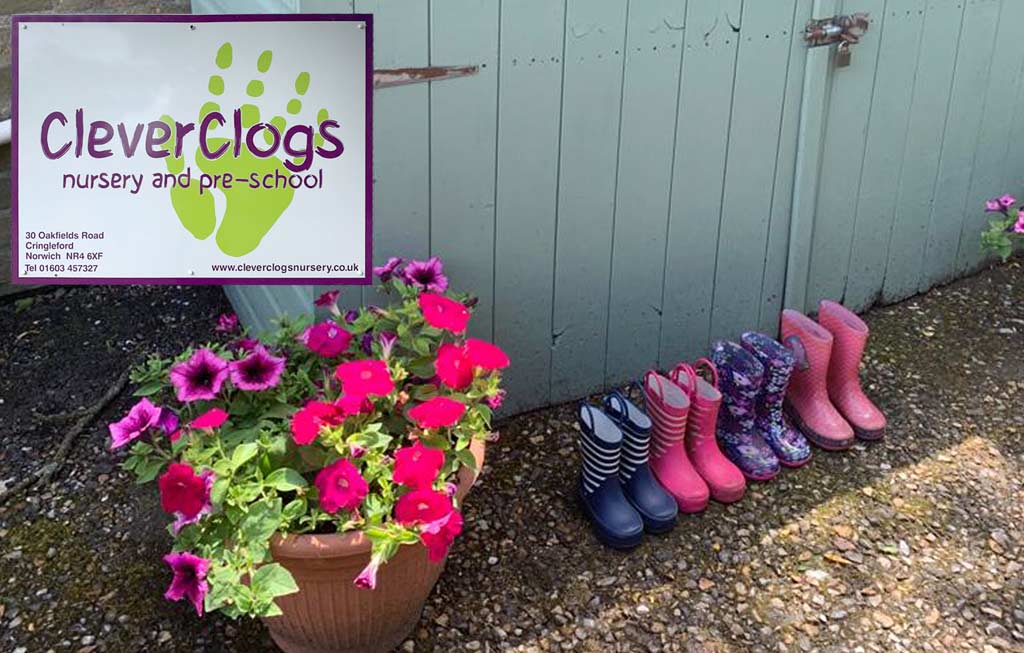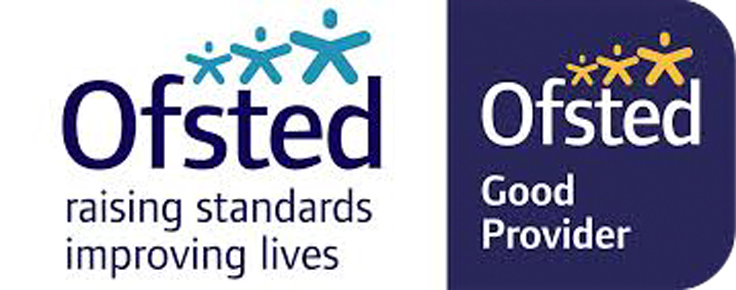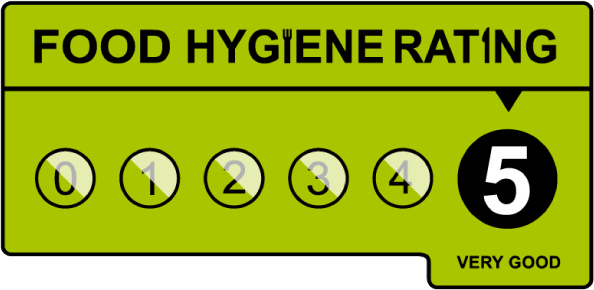CleverClogs Nursery and Pre-school
Learning and Development Policy
Policy Statement
To provide a consistency of practice throughout the nursery ensuring that all children have equal access to a developmentally appropriate, high quality learning environment.
To support the development of a community of learners and practitioners of all ages.
Cleverclogs Nursery aims to:
Use the Early Years Foundation Stage (EYFS) to support, inform, guide and challenge all staff. The staff believe that it is important to value all babies and children as individual, competent learners from the time they arrive with us. All children have a need to develop; therefore we recognise their individuality, efforts and achievements. Relationships with adults and children are crucial in a child’s life and a relationship with a key person is essential. Children learn best through interaction with people and active exploration of the world around them.
Play supports all aspects of children’s development, through play children learn by doing rather than being told. Young children are individuals and progress at different rates. Schedules and routines must follow the child’s own needs. Children learn when they are given the appropriate responsibility, allowed to make decisions, choices and errors and are respected as autonomous and competent learners.
The contexts in which children learn need to be relevant, meaningful, motivating and interesting to them. A play based Early Years Foundation Stage supports all aspects of children’s development. Through play both indoors and outdoors children learn by having practical, hands on, meaningful opportunities to experience real life situations, make choices and have ownership over their actions and reactions.
The Early Years Foundation Stage supports the child’s inbuilt curiosity and desire to make sense of the world around them and helps them discover that learning is interesting and fun; this is vital if children are going to be keen to learn for the rest of their lives.
The staff actively promotes positive attitudes to diversity and differences within all children, parents and staff. The aim is to ensure that we help the children and the staff learn to value different aspects of their own and others peoples lives. This includes ensuring that all people who use the setting feel included, safe and valued, and that all children and adults are treated as individuals and are not discriminated against and that all children are listened to and respected.
We believe that parents and families are central to the well being of the child and should be involved in their children’s experiences and development. Early years staff need to make visible children’s learning to enable parents to understand, contribute to and support their child’s learning.
We believe a high quality early years experience provides a firm foundation on which to build future academic, social and emotional success. The key to this is ensuring continuity between all settings and that children’s social, emotional and educational needs are addressed appropriately. The transition between other settings should be seen as a process not an event and will be planned for and discussed with children (when appropriate) and parents.
The nursery puts into practice the four principles of the Early Years Foundation Stage, which guides the work of our staff and are grouped into four distinct, but complementary themes:
A unique child
Every child is a unique child who is constantly learning and can be resilient, capable, confident and self-assured.
Positive relationships
Children learn to be strong and independent through positive relationships.
Enabling environments
Children learn and develop well in enabling environments, in which their experiences respond to their individual needs and there is a strong partnership between practitioners and parents and carers.
Learning and development
Children develop and learn in different ways. The framework covers the education and care of all children in early year’s provisions, including children with special educational needs and disabilities.
Practitioners teach children by ensuring challenging, playful opportunities across the prime and specific areas of learning and development
Organisation of the nursery provision
- Research shows that the best form of quality practice for young children involves structuring of the provision in terms of:
- Space, time, materials and equipment.
- Staff interactions (which requires knowledge of child development and pedagogy).
- Partnership with parents.
- Relationships with other agencies.
At Cleverclogs Nursery we:
- Provide a stimulating environment with easily accessible resources both indoors and outdoors.
- Allow children time to become engrossed in activities, complete them and return to them later if they wish.
- Offer children a range of well planned play opportunities which offer continuity and progression. (i.e. physical play, creative play, imaginative play, social play and play with materials).
- Provide play contexts, which are well planned and resourced to foster all aspects of children’s development including physical, emotional, social and intellectual.
- Provide situations, which will enable children to appreciate the multicultural society in which they live.
- Provide appropriate, good quality materials and resources that reflect careful planning and enable children to interact at their own level of development and allowing for progression by exciting children’s interests and curiosity.
Our staff:
- Develop close relationships with children in their key person groups.
- Involve parents and encourage them to contribute to and support their child’s learning.
- Understand the importance of play and enjoy playing alongside the children indoors and outdoors.
- Encourage children to explore everyday situations in their play.
- Respect and value children’s play and learning and are able to intervene sensitively in it using language to support and extend children’s thinking.
- Help children to become independent learners and to develop their creativity and imagination.
- Have time to observe children at play and monitor their development in all areas in order to inform future planning of play provision and experiences.
- Respond to observation and assessment of the children’s developmental needs and interests.
- Enable children to initiate their own learning as well as take part in adult initiated experiences.
- Positively encourage all children to have equal access to all play experiences indoors and outdoors.
- Challenge stereotypical ideas about play.
The staff use the Early Years Foundation Stage (EYFS) as a planning framework. The setting offers a broad curriculum using the 7 areas of learning, which are broken down into prime areas and the other areas of learning.
Prime areas:
Communication and language – this involves giving your child opportunities to experience a rich language environment; to develop their confidence and skills in expressing themselves; and to speak and listen in a range of situations.
Physical development – this involves providing opportunities for your child to be active and interactive; and to develop their co-ordination, control and movement. It encourages them to understand the importance of physical activity, and to make healthy choices in relation to food.
Personal, social and emotional development – this involves helping your child to develop a positive sense of themselves, and others; to form positive relationships and develop respect for others; to develop social skills and learn how to manage their feelings; to understand appropriate behaviour in groups and to have confidence in their own abilities.
Others areas of learning:
Literary – this encourages your child’s development in linking sounds to letters and to begin to read and write. It allows your child access to of a wide range of reading materials such as poems and books to ignite their interest.
Mathematics – this involves your child being provided with the opportunities to develop and improve their skills in counting, understanding and using numbers, calculating simple addition and subtraction problems; and to describe shape, space and measure.
Understanding of the world – this involves guiding your child to make sense of the physical world and their community through opportunities to explore, observe and find out about people, places, technology and the environment.
Expressive arts and design – this involves allowing your child to explore and play with a wide range of media and materials, as well as providing opportunities and encouragement for sharing their thoughts, ideas and feelings through a variety or activities in art, music, movement, dance, role-play and design and technology.
- When children under three behave in inappropriate ways we recognise that strategies for supporting them will need to be developmentally appropriate and differ from those for older children.
- We recognise that babies and very young children are unable to regulate their own emotions, such as fear, anger or distress, and require sensitive adults to help them to do this.
- Common inappropriate or hurtful behaviours of young children include tantrums, biting or fighting. Staff are calm and patient, offering comfort to intense emotions, helping children to manage their feelings and talk about them to help resolve issues and promote understanding.
- If tantrums, biting or fighting are frequent, we try to find out the underlying cause – such as a change or upheaval at home, or frequent change of carers. Sometimes a child has not settled in well and the behaviour may be the result of ‘separation anxiety’.
- We focus on ensuring a child’s attachment figure in the setting, their key person, is building a strong relationship to provide security to the child.
Recording children’s development
Cleverclogs Nursery ensures that all children attending the setting have a personal Learning Journey which records assessments, comments and photos, in line with the Early Years Foundation Stage (EYFS), to build up a record of each child’s achievements during their time with us.
It is the key workers responsibility to upload photos, observe and assess key children under the early years foundation stage. The keyworker will compete a 2 year check progress check between their 2nd and 3rd birthday.
Parent access allows them to see what their key worker has added throughout their child’s time at nursery and provides the opportunity for key workers to observe what they achieve at home.
It will show children’s developmental progress through the different areas of the EYFS.
EYFS 7 Areas of learning:
- Personal, Social and Emotional Development.
- Physical Development.
- Communication and Language.
- Literacy.
- Mathematics.
- Expressive Arts and Design.
Procedures
- Cleverclogs Nursery uses an online Learning Journey system, allowing staff and parents to access the information from any computer via a personal, password-protected login.
- Staff members are to login onsite only.
- Parents/carers are unable to change any input from staff.
- Parents logging into the system are only able to see their own child’s Learning Journey.
- Parents sign for consent for cleverclogs to use the journal to record their child’s development during the registration process.
- Parents sign for consent for their child possibly appearing in photos taken of other children and being uploaded to another child’s learning journey. The parents who sign this agreement also agree that they will only use the photographs for personal use and that they will not be uploaded to any social media sites or any other public use.
In addition to this at Cleverclogs we carry out the progress check at 2 years, the aim of this check is to coincide with the healthy child review. It offers the parents/carers a report on their child’s development in the three prime areas of the EYFS, it enables practitioners to understand where each child is developmentally and plan and prepare activities to develop their learning further. It also is a tool which is used with the parents/carers to identify where their child is in relations to their learning and identifies any areas of strength and areas which need developing further.
Other agencies
We work with other agencies in order to share expertise and knowledge for the benefit of all or individual children and for the development of our staff.
These agencies may include:
- Children’s Centres.
- Health Visitors.
- Support teachers.
- Portage Workers.
- Child development Unit.
- Community Paediatric Nurses.
- The Local Authority Early Years Team.
- Single Point of Access.
- Local Early Years Cluster Groups.
- National Early Years Organisations (i.e. NDNA, NCMA, PLA).
- Specific Voluntary Health Information Organisations (i.e. Asthma UK, Meningitis Trust, Health Protection Agency).
- Any other relevant local or national agencies.
Adults
An effective key person system ensures that children form strong and secure relationships with a key person and benefit from high quality experiences which build upon their interests and responds to their needs. Men and women are encouraged to take part in all types of play to challenge stereotypical ideas about what is suitable for girls and boys. Adults interact sensitively with children to heighten the quality of experiences and build upon the children’s interests. All staff see parents as partners in providing care and education for their children, and will be encouraged and supported to take part in that process.
Environment and resources
Children will be encouraged to help staff plan and organise the environment and resources giving them opportunities to learn and help them value learning. The learning environment indoors and outdoors is planned carefully to ensure that children can access and participate in all areas of provision. Resources are organised to allow children to access them independently by appropriate use of the floor, treasure baskets, low shelving, and picture labels. Resources include bought, found (i.e. recycled materials, shells, leaves) and improvised items (i.e. old curtains to make dens, shawls)
Observation
Adults take time to look and listen while working with the children. Observations help adults to get to know the children and identify their interests and abilities in order to plan next steps and experiences appropriately.
Planning
Play experiences are planned in response to observations of the children and knowledge of the child gained from parents and other sources. They include possible learning and development, but also allows for play to arise spontaneously from children’s own ideas.
Adults regularly evaluate, reflect on and develop the provision they make for play. Outdoor exploration is important for all children. Outdoors is half of the play environment.
Assessment
Planning, observations and evaluations of play are completed by key workers and learning priorities are identified for each child and any gaps are identified and incorporated into future planning. Parents are encouraged to contribute to their child’s learning through discussion, parents evening, daily feedback, diary’s and jottings.
CleverClogs
Longwater
441 Dereham Road New Costessey
Norwich NR5 OSG
Click here for CleverClogs Longwater


CleverClogs
Cringleford
30 Oakfields Road Cringleford
Norwich NR4 6XF
Click here for CleverClogs Cringleford



